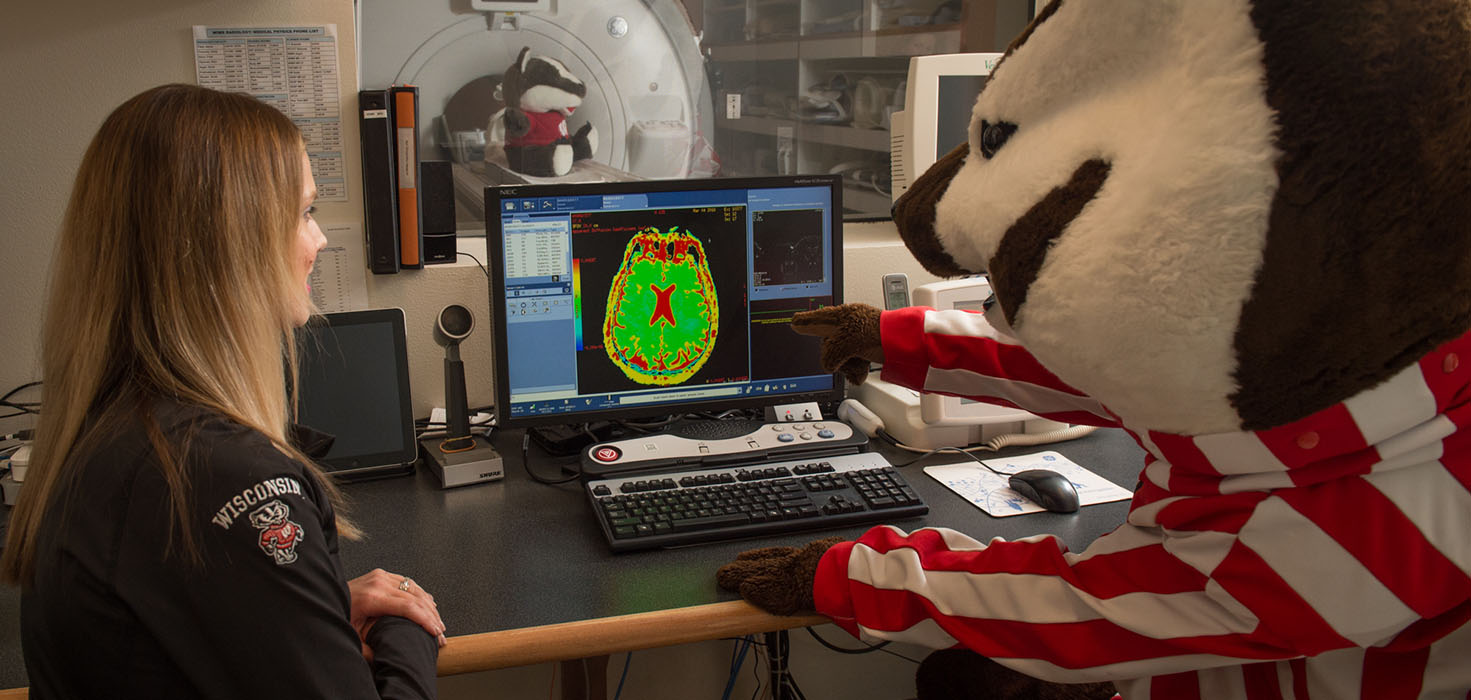
16 Oct ‘All of Us’ can help improve cancer prevention and treatment
Each of us is different, but could the differences of one million of us be put together to find better, more personalized treatments for cancer and other diseases? That is the question the All of Us Research Program is expecting to answer – and it could use ‘all of us’ to help.
The University of Wisconsin-Madison School of Medicine and Public Health, in partnership with UW Health, is part of this nationwide effort, led by the National Institutes of Health (NIH), to gather health data from more than one million people to help accelerate innovation to discover breakthroughs in the prevention and treatment of cancer and other health disorders.
“The All of Us Research program is an exciting, unique opportunity for participants to play an active role in modern medicine for the benefit of future generations,” said Beth Burnside, MD.
Led by Burnside, a UW Carbone Cancer Center physician who is also deputy executive director of the UW-Madison Institute for Clinical and Translational Research (ICTR) and Dorothy Farrar-Edwards, Ph.D., director of the UW-Madison Collaborative Center for Health Equity (CCHE), the aim in Wisconsin is to enroll participants who reflect the diversity of the nation, shedding light on health differences based on age, gender, ethnicity and socioeconomics.
All of Us
Learn more about the research study and how you can participate at allofus.wisc.edu. You can also contact the UW team at allofus@hslc.wisc.edu or 888-294-2662
The mission of All of Us is simple: to speed up health research and medical breakthroughs. In addition, the program is focused on precision medicine, seeking to make health care more personalized with considerations for an individual’s environment, lifestyle and family health history. Researchers will be able to use these data to conduct thousands of studies, which may help them discover and match the right treatment to the right person at the right time.
“The All of Us program can be especially beneficial to cancer research with its aim of discovering more personalized, life-saving treatments for various cancers,” Burnside said. “As more cancer patients and survivors participate in a program like this, we’ll develop a better understanding of the genetic and environmental factors that lead to, as well as prevent, cancer for the benefit of future generations.”
At the national level, the program is directed by the NIH’s Eric Dishman, Ph.D., a cancer survivor, whose diagnosis and precision medicine-focused treatment experience inspired him to lead the All of Us effort.
“I had to figure out how to make this precision health care, which was customized just for me, based on what they learned about me from understanding my genetics,” Dishman said. “How do we do the science that helps us work for all conditions, not just cancer, so that care can be customized for the individual, not the ‘one-size-fits-all’ care that we have today? That’s the essence of what the All of Us Research Program is about.”
The program seeks anyone, 18 years of age or older, of any health status, to share their health and lifestyle data and samples of blood and urine to build the largest health database of its kind. All participant data is encrypted and All of Us utilizes rigorous security models to help ensure participant data is protected and used ethically and responsibly. “An important feature of this program is that each participant will have access to her or his own health data,” Farrar-Edwards said. “Individuals will have the option to share the information with their health care provider, but only if they choose to do so.”
Participants may enroll at UW Hospital, the UW Nursing School, UW Health East and West Clinics and, most recently, UW Health at the American Center (TAC).
Learn more or register to participate at allofus.wisc.edu or contact the UW team at allofus@hslc.wisc.edu, 888-294-2661.
– Reposted from UW Health



